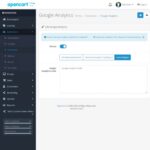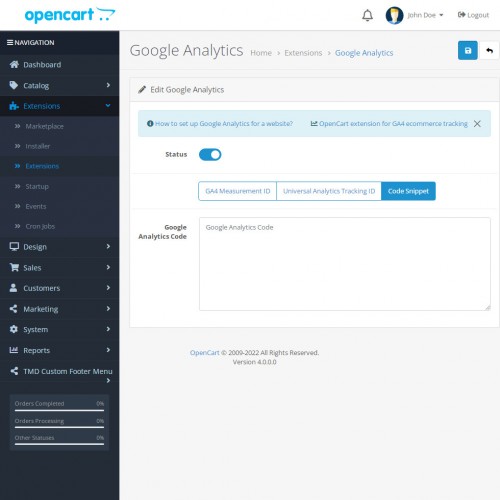A Deep Dive into Prosus’ $617 Million Trade Loss
The recent news of Prosus’ $617 million trade loss has sent shockwaves through the financial world. This unexpected setback has prompted many to question the causes and implications of such a significant financial loss. In this section, we will take a deep dive into the factors that contributed to this trading mishap and explore the broader context of market volatility that may have played a role. By examining the details surrounding Prosus’ investment setback, we can gain valuable insights into the challenges and risks faced by companies in today’s ever-changing global market.

The Factors Contributing to Prosus’ Loss and Their Impact
In today’s rapidly changing global economy, companies like Prosus face numerous challenges that can impact their financial performance. Understanding the factors contributing to a company’s loss is crucial for investors and stakeholders alike. In the case of Prosus, several key factors have played a role in their recent financial setback.
These factors include risk management strategy, market conditions, global economic trends, investment decisions, and currency fluctuations. By examining each of these elements in detail, we can gain valuable insights into the impact they have had on Prosus’ financial performance and the steps they may need to take moving forward to mitigate future losses.
1. Market Volatility and its Role in Prosus’ Trade Loss
In the fast-paced world of trading, market volatility can often be a double-edged sword. While it presents opportunities for significant gains, it also carries the risk of substantial losses. One company that has recently experienced the impact of market volatility is Prosus. As a global technology investment firm, Prosus is not immune to the unpredictable price movements caused by external events. In this section, we will explore the role that market volatility played in Prosus’ trade loss and delve into the factors that contributed to this outcome. By understanding how market volatility can affect trading performance, investors can make more informed decisions and mitigate potential risks in their own portfolios.
2. Risk Management Strategies and Oversight Issues at Prosus
In today’s fast-paced and ever-changing business landscape, risk management has become a crucial aspect for companies to ensure their long-term success and sustainability. This is particularly true for organizations like Prosus, which operate in diverse industries and face a wide range of risks.
Prosus, being a global technology investor, understands the importance of robust risk assessment protocols and internal control systems. By implementing comprehensive risk management strategies, Prosus aims to identify potential risks, evaluate their impact on the organization, and take proactive measures to mitigate them.
One of the key aspects of Prosus’ risk management approach is the establishment of effective internal control systems. These systems are designed to monitor and assess various operational processes, financial transactions, and compliance with regulatory requirements. By having strong internal controls in place, Prosus can identify any deviations from established norms or potential red flags that may indicate increased risk exposure.
Furthermore, Prosus has implemented a range of risk mitigation measures to address identified risks effectively. These measures include diversification of investments across different sectors and geographies, rigorous due diligence processes before making investment decisions, continuous monitoring of portfolio companies performance, and adherence to best practices.
In addition to these measures, Prosus also emphasizes regular training programs for its employees to enhance their understanding of risk management principles and practices. This ensures that everyone within the organization is equipped with the necessary knowledge and skills to contribute toward effective risk oversight.
Overall, by adopting comprehensive risk management strategies and implementing robust oversight mechanisms, Prosus demonstrates its commitment to safeguarding its business interests while maximizing value for its stakeholders. Through proactive identification and mitigation of risks at various levels within the organization, Prosus strives to maintain a resilient position in an increasingly complex business environment.
3. Global Economic Conditions and their Influence on Trading Performance
In today’s interconnected world, global economic conditions play a crucial role in shaping trading performance and investor sentiment. Financial markets are highly sensitive to economic indicators and any shifts in the global economic landscape can have a profound impact on trading outcomes. From GDP growth rates to inflation levels, from interest rate fluctuations to geopolitical tensions, all these factors have the potential to sway market dynamics and influence investment decisions.
One key factor that has been particularly relevant in recent times is the fear of recession. As economies go through periods of slowdown or contraction, investors become cautious and risk-averse. Recession fears can lead to heightened volatility in financial markets, as uncertainty prevails and sentiment becomes more pessimistic. This can result in significant fluctuations in stock prices, currency exchange rates, and commodity prices.
Understanding the intricate relationship between global economic conditions and trading performance is essential for traders, investors, and financial institutions alike. By closely monitoring economic indicators from around the world, market participants can gain valuable insights into potential opportunities and risks. Additionally, staying informed about government policies, central bank actions, and geopolitical developments allows traders to adapt their strategies accordingly.
It is worth noting that while global economic conditions have a significant impact on trading performance, other factors such as company-specific news or industry trends also come into play. Therefore, it is crucial for traders to adopt a holistic approach when analyzing market dynamics.
In this section of our report/analysis/discussion (depending on context), we will delve deeper into the various economic indicators that affect financial markets worldwide. We will explore how changes in GDP growth rates, inflation levels, interest rates, employment data, trade balances, and other key metrics impact investor sentiment and subsequently influence trading outcomes. By gaining a comprehensive understanding of these factors interplay with market dynamics, readers will be equipped with valuable knowledge that can help them navigate through uncertain times successfully.
So let us embark on this journey together as we explore the fascinating relationship between global economic conditions and trading performance.
The Implications of the Trade Loss for Prosus and Its Stakeholders
The recent trade loss experienced by Prosus has significant implications not only for the company itself but also for its shareholders and investors. This unfortunate event raises important questions about the financial stability of Prosus and its potential impact on its stakeholders. Additionally, it poses a considerable challenge to the leadership team in terms of reputation management and restoring trust among investors. In this section, we will explore the various implications of this trading loss and delve into the measures that Prosus can take to mitigate its effects and regain the confidence of its stakeholders.
Navigating the Future: Steps Prosus Can Take to Recover from the Trade Loss
In the wake of a trade loss, it is crucial for Prosus to take proactive steps to navigate the future successfully. By implementing strategic adjustments to its investment portfolio composition, enhancing risk management practices, and rebuilding investor trust through transparency and improved reporting mechanisms, Prosus can recover from this setback and position itself for long-term growth and success.
One key aspect that Prosus should focus on is reevaluating its investment portfolio composition. By strategically adjusting the allocation of investments across different sectors and geographies, Prosus can mitigate risks and capitalize on emerging opportunities. This may involve diversifying their holdings or reallocating resources towards sectors that show greater potential for growth.
Furthermore, enhancing risk management practices is vital to safeguarding against future losses. This includes conducting thorough due diligence before making investment decisions, closely monitoring market trends and volatility, and implementing robust risk assessment frameworks. By proactively identifying potential risks and taking appropriate measures to manage them effectively, Prosus can minimize the likelihood of experiencing significant trade losses in the future.
Rebuilding investor trust is paramount for Prosus to regain confidence in its operations. Transparency plays a pivotal role in this process. By providing clear and comprehensive reporting mechanisms that offer investors insight into the company’s financial performance, risk exposure, and strategic initiatives, Prosus can foster open communication with stakeholders. Additionally, demonstrating a commitment to ethical business practices further strengthens investor trust.
In conclusion, navigating the future requires strategic adjustments to investment portfolio composition, enhanced risk management practices, as well as rebuilding investor trust through transparency and improved reporting mechanisms. By taking these steps diligently, Prosus can recover from its trade loss while positioning itself for sustainable growth in an increasingly competitive landscape.
Conclusion: Lessons Learned from the Prosus Trade Loss
In today’s fast-paced and unpredictable trading environment, the Prosus trade loss serves as a stark reminder of the risks associated with volatile markets. It highlights the need for robust risk management strategies to safeguard investments and mitigate potential losses.
One of the key lessons learned from this incident is the importance of continuous evaluation of investment decisions. In a rapidly changing market, what may seem like a sound investment today could quickly turn into a significant loss tomorrow. Therefore, it is crucial for traders and investors to regularly assess their positions and make adjustments as needed.
Furthermore, proactive measures should be taken to mitigate potential losses. This includes implementing risk management tools and techniques, such as stop-loss orders or hedging strategies, to limit exposure in times of market volatility. By being proactive rather than reactive, traders can minimize the impact of adverse market movements on their portfolios.
Additionally, it is essential for traders to stay informed about current market trends and developments. This enables them to anticipate potential risks and take appropriate actions in advance. By staying ahead of the curve, traders can position themselves more effectively in volatile markets.
In conclusion, the Prosus trade loss serves as a valuable lesson for all traders and investors. It emphasizes the need for robust risk management strategies in today’s trading environment. By continuously evaluating investment decisions, taking proactive measures to mitigate potential losses, and staying informed about market trends, individuals can navigate volatile markets with greater confidence and resilience.











